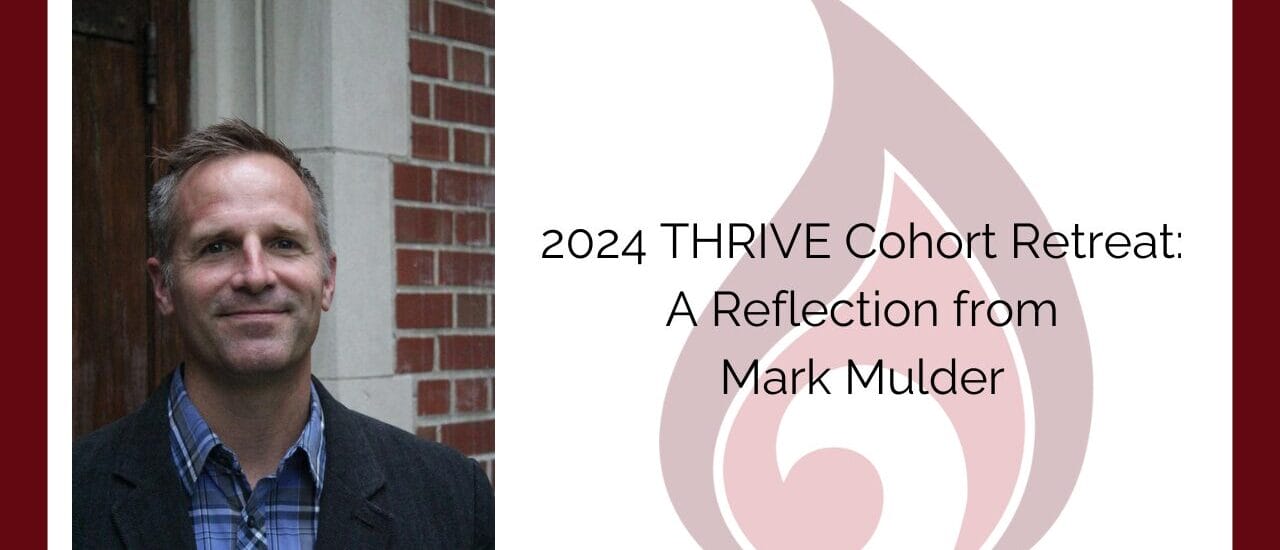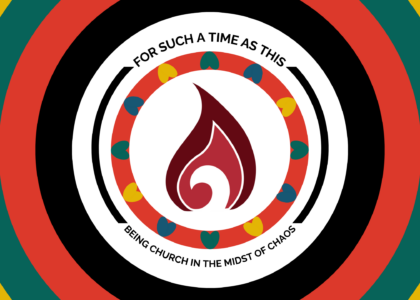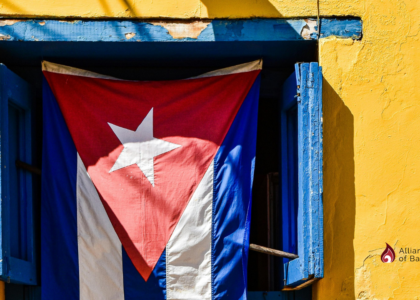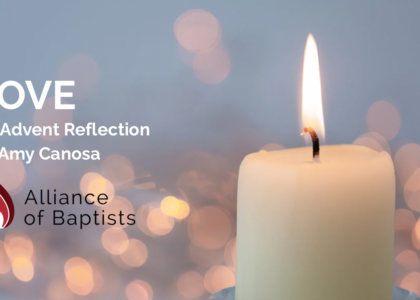By Mark Mulder
From October 7-9, over 30 members from the Alliance’s “Congregations that THRIVE for Racial Justice” cohorts met just outside of Washington DC at Ravensworth Church in Annandale, Virginia. With an agenda curated by Alexis Tardy (THRIVE coordinator), those in attendance heard from experts, worshipped, debriefed, and experienced the National Museum of African American History and Culture together. The retreat sought to create a space for THRIVE leaders to learn, commiserate, celebrate, and lament. Congregations from Dallas, Charlotte, Columbia, Hattiesburg, Minneapolis, Madison, Edmonton, Cambridge, Albany, Louisville, Raleigh, and DC were all represented. Some sent multiple representatives.
Monday evening began with a time for fellowship, worship, and a review of the summer of 2024’s THRIVE theme of “Theologies of Resistance.” Tuesday morning started with a panel from Ravensworth describing their antiracism efforts to date. The Ravensworth panel discussed their audit commission which included a self-examination of their hiring practices, worship rituals, vendor policies, and overall congregational identity. In addition, they described their ad hoc art committee whose members examined the church’s extensive art collection for representation, historical accuracy, inclusiveness, and aspirations of multicultural affiliations. In another instance, the congregation researched the history of the land where the church now sits and have initiated a tour of the area that highlights the forgotten/concealed African American history in their local community. Panelists also noted the tension they felt as they attempted to move the congregation “as a whole” toward racial justice. Finally, it should be noted that Ravensworth has recently received a grant to “decolonize their worship.” The time concluded with an insightful Q&A.
Attendees then heard a joint presentation from Milton Keys (Founder and President, Advocate’s Embassy) and Mia McClain (Senior Pastor, Riverside Baptist Church, Washington, D.C) regarding “Worship that Activates.” Milton offered a theological basis for worship and liturgy as the place where disciples can be formed. In other words, he challenged those in attendance to be reinvigorated about the role of worship in discipleship. Further, he argued that only through discipleship can empire be undermined—it is worship that dispels the nationalist myth and “lays waste to empire.”
In other words, he [Dr. Keys] challenged those in attendance to be reinvigorated about the role of worship in discipleship. Further, he argued that only through discipleship can empire be undermined—it is worship that dispels the nationalist myth and “lays waste to empire.”
Mia followed with practical implications. In a continuation of the Annual Gathering themes, Mia described what it might look like to decolonize worship. This included being aware of the fact that worship is a negotiation of identity and that churches need to have flexibility if they are to decolonize worship. Mia suggested three tangible elements of worship to consider:
- Spoken word. For example, “othering” can easily occur when worship leaders assume homogeneity within the congregation. Moreover, metaphors like “I once was blind” should be scrutinized as well for the ways in which it could demean and offend.
- Music. What hymns are chosen? What are the lyrics communicating? Is it consistent with the congregation’s stated commitments?
- Space and body. Is your congregation’s worship predicated on order and mastery? Might that be an outcome of colonization?
After a short break for lunch, Erreol Morgan (Founder and President, Black Women of Faith, Inc.) discussed the topic of “Worship that Empowers.” Erreol offered an opportunity to fully consider congregational identity and the role of leaders if congregations really want to organize for justice. That is, if a congregation misconstrues or misunderstands their own identity, they will find it extremely difficult to actually strategize and advocate for justice. Erreol concluded by noting that organizing includes processes of timelines and strategies—two challenges for most congregations.
By midafternoon on Tuesday, the retreat group migrated together to the National Museum of African American History and Culture. Staying until the museum closed, the retreat group returned to the hotel for over an hour of debrief. Wednesday morning concluded the retreat as the group reconvened at Ravensworth for worship, a workshop on organizing and economics, and small group breakouts.

Dr. Mark T. Mulder is professor of sociology at Calvin University, Grand Rapids, Mich., and focuses his work on urban congregations and their changing racial-ethnic demographics. Among his most recent publications is his book The Glass Church: Robert H. Schuller, the Crystal Cathedral, and the Strain of Megachurch Ministry.





Recent Comments